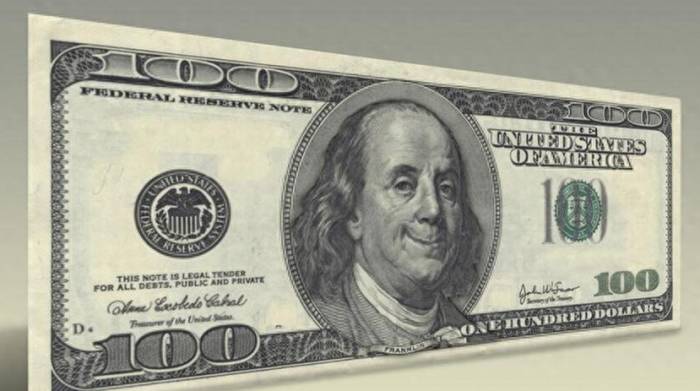US May Cut Rates 50bps! BRICS Move Shakes World Economy
After the European Central Bank made the decision to cut interest rates, the Federal Reserve's rate cut is like an arrow on the string, ready to be shot.
Moreover, the probability of the Federal Reserve being forced to cut rates by 50 basis points has now reached 62%.
Originally, the U.S. dollar's interest rate hikes belonged to a tightening policy, while the euro's interest rate cuts are a loose policy, and this starkly contrasting monetary policy greatly diminishes the effectiveness of the U.S. dollar's high-interest-rate policy.
In addition, core allies of the U.S. such as Canada and the United Kingdom have also successively cut interest rates.
Therefore, it is difficult for the U.S. to maintain high interest rates and has to give up its original layout, initiating a cycle of interest rate cuts for the U.S. dollar.
Over the past few decades, the West has, within the framework of globalization, divided the main benefits of the global economy by controlling finance and the high-end technology industry chain, becoming the greatest beneficiaries of globalization.
Advertisement
However, they are now dismantling globalization with their own hands.
Finance loses its targets and can only harm itself, technology loses its market and will regress, and high-end industries no longer trade with developing countries, forcing the other party to start anew.
Over the years, the global situation has changed, and once the world enters a cycle of interest rate cuts, the U.S. will find that it has only one way to go.
In the U.S.'s original script, they hoped to establish their own financial circle and economic cycle to prevent a large influx of funds into developing countries.
But it is clear that it has not succeeded.
Therefore, in the future, the U.S. can only relax restrictions and re-integrate into globalization.
However, this globalization is no longer the same as before, and developing countries have also participated, and the U.S. can no longer be the only leader as before.
For example, in the financial market, the past SWIFT had a monopolistic position, but now the BRICS organization is about to launch its own BRICS payment system.
This not only affects the status of the U.S. dollar but also affects the trade behavior of many Western countries.
The reason is that everyone has found that the collapse of the U.S. system is much faster than expected.
And if the BRICS countries really achieve de-dollarization transactions internally, it will be very disadvantageous for countries that rely on the U.S. dollar system, which will lead to a huge increase in trade costs.
Imagine, after the new settlement system is launched, will China choose to buy resources from BRICS countries or expand cooperation with Western countries?
Obviously, we will prioritize resources from BRICS countries.
This can not only avoid the impact of U.S. trade on us but also avoid holding a large amount of U.S. dollar foreign exchange, thus avoiding the impact of potential U.S. currency devaluation in the future.
But for many Western countries, China has become the largest trading partner for many Western countries.
Once we transfer a small part of our trade share to the BRICS, for these Western countries, the loss may be most of the trade share.
Between interests and values, which is more important?

Today's Europe and America, although they maintain consistency on the surface, have long been difficult to reach a consensus.
As the BRICS countries grow stronger and stronger, the West's ability to maintain its own strength will only become weaker and weaker, and more countries may choose to leave the Western camp.
Now that Turkey has taken the lead in joining the BRICS countries, officials from France and Bulgaria have also expressed their willingness to follow.
On the other hand, the U.S. is becoming more extreme and conservative, only wanting to protect its own market from being occupied.
Under such circumstances, can products from other countries still enter the U.S. market smoothly?
Therefore, Europe and America have long been internally disintegrated.
In fact, from the U.S. chip sanctions alliance, we have clearly seen that the U.S. and other countries have produced an increasingly huge centrifugal force.
Before the U.S. introduced the chip bill, the European Union also introduced its own chip bill, each using cash to attract the chip industry, which is actually a trade war between Europe and America.
This is the biggest change in the global economy, and the trend is irreversible.
Americans have no way out and can only integrate into the new global economic system.
Therefore, many people believe that this round of interest rate hikes will be the last time for the U.S. dollar to harvest the world.
The situation has changed, and they dare not act rashly anymore.
Leave A Comment